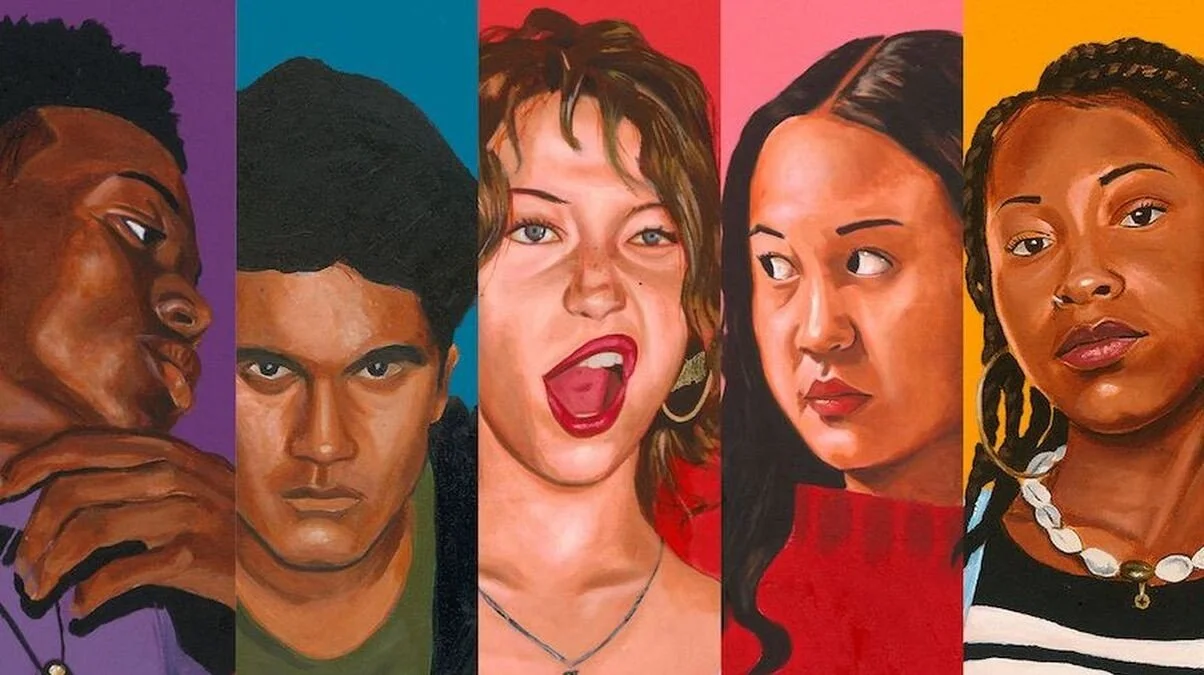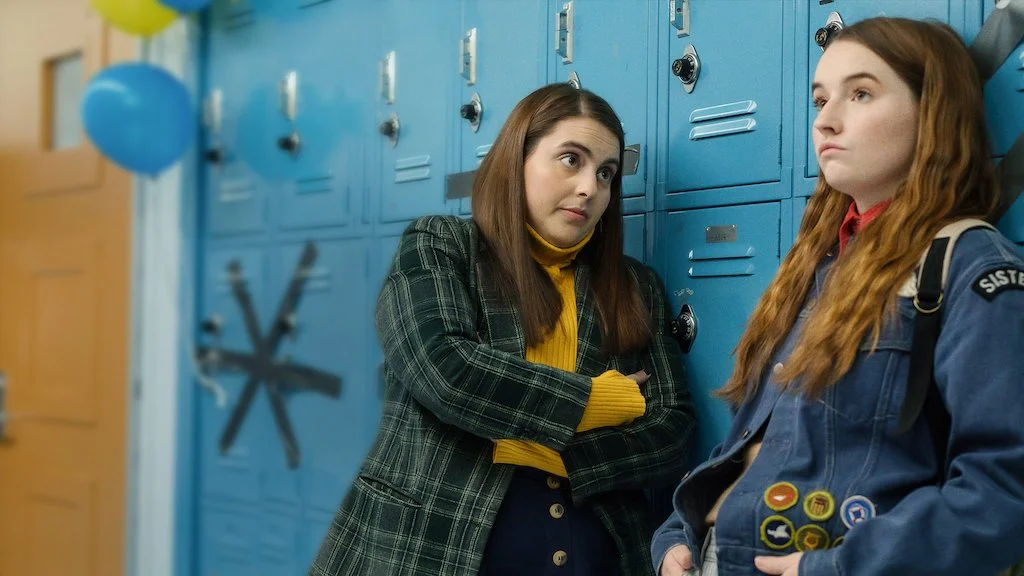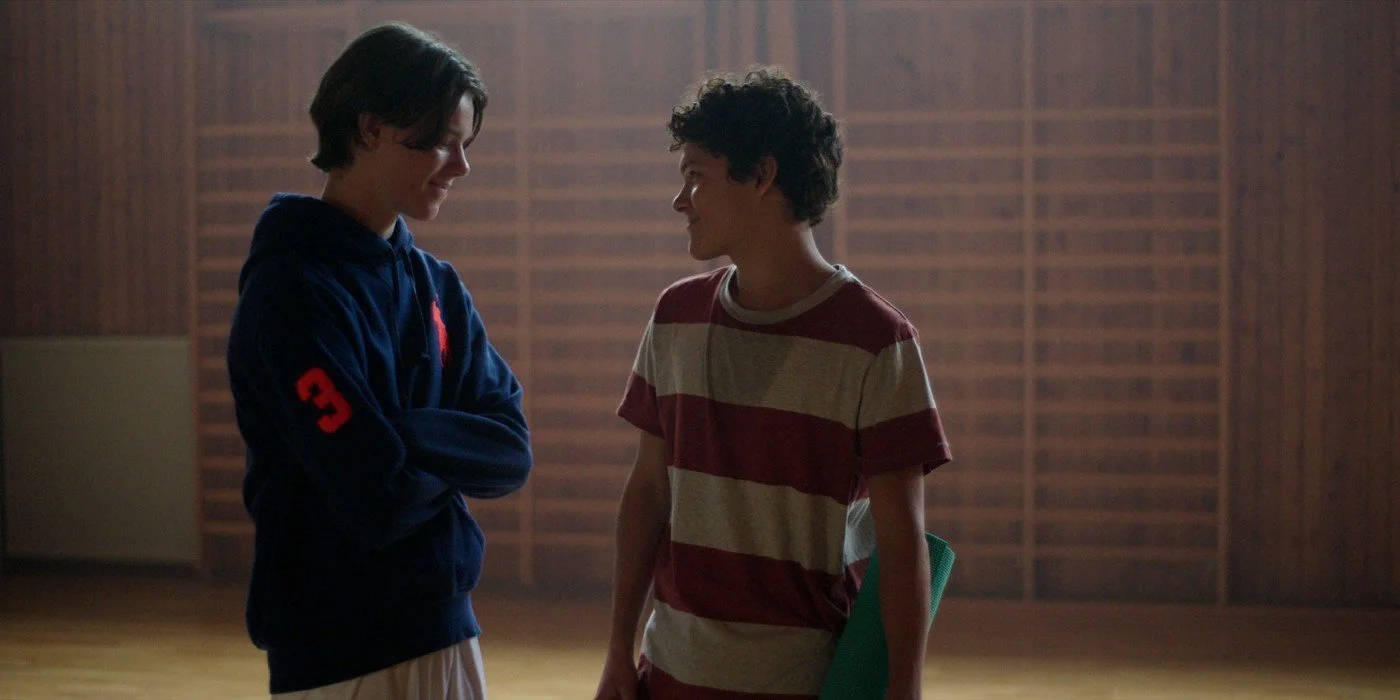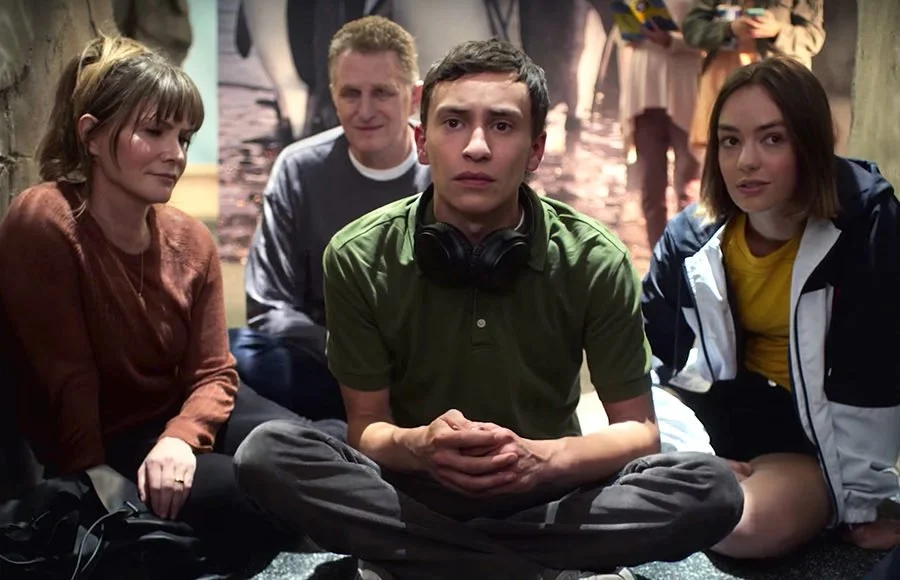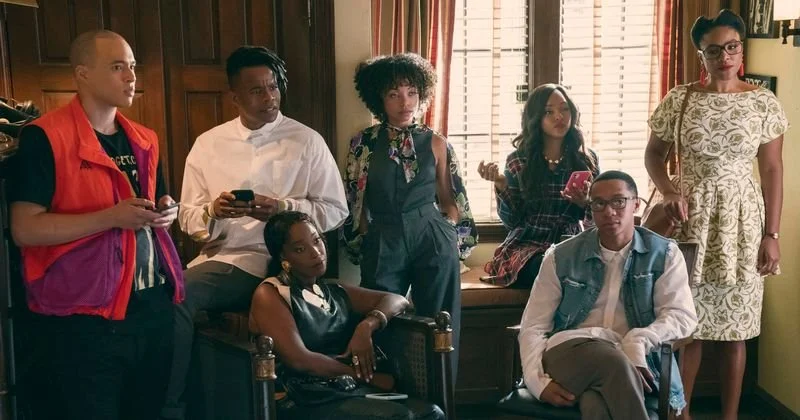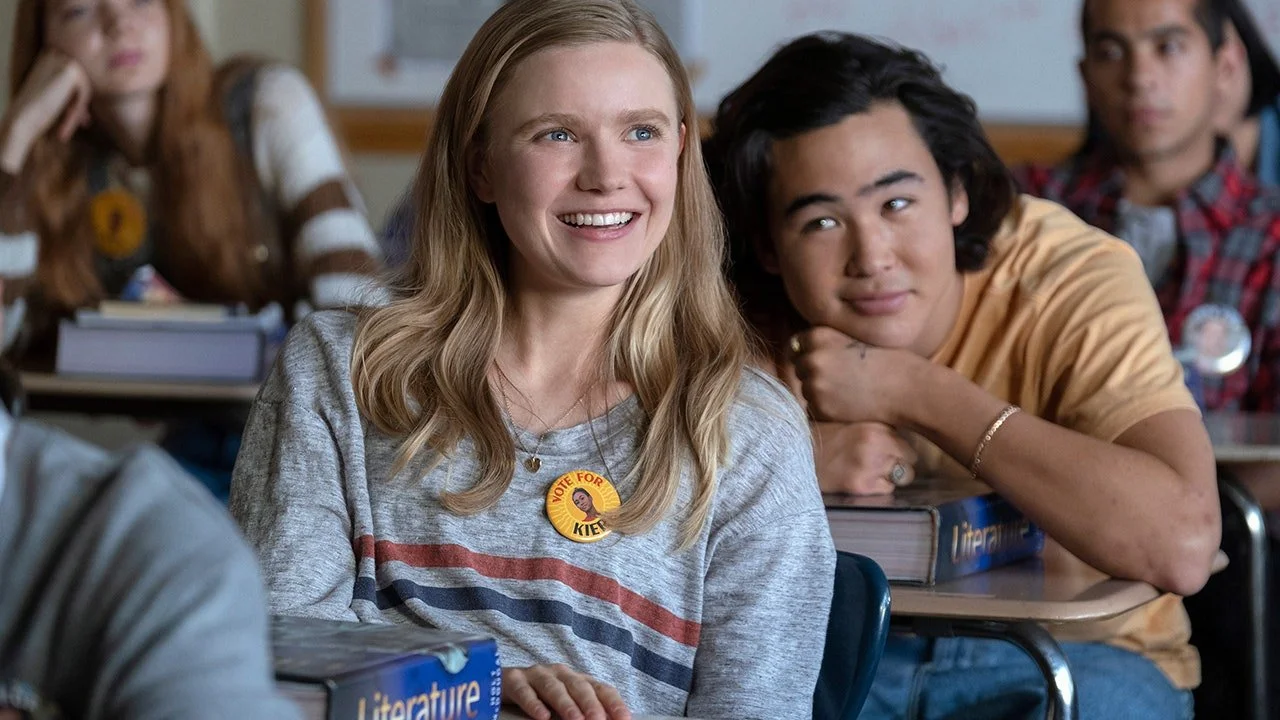By Maggie Mackenzie (she/her)
CW: mentions of sexual assault, homophobia, racism, ableism, toxic masculinity, mental health, eating disorders
Over the last four weeks, OWP has been sharing a bunch of content to help upskill youth in their ability to discern representations of gender, sexuality, and relationships within media. We’ve focused on some of our favourite, or most popular, TV shows and movies of the last ten years, noting areas of toxic masculinity, toxic femininity, and unhealthy representations of relationships.
As our #ChangeTheChanel campaign comes to a close, I thought it would be fitting to highlight some of the media that is circulating Netflix, and other streaming sites, that are representative, diverse, and succeed in their depictions of societal issues and relationships. Because, sometimes, all I want to watch is a good teen drama romance without getting triggered by horrible portrayals of women, toxic behaviour from men, or a lack of representation of gender-diverse folk. Is that really too much to ask?
It is important to note that these shows are by no means perfect. As our society continues to grow and educate itself, so too does our media. However, I feel that these shows stand out in their own ways, and represent a healthy progression for the film industry and its portrayals.
Disclaimer: I would like to acknowledge that One Woman Project in no way supports Dave Chappelle’s recent transphobic comments, nor Netflix’s position on this issue.
1. Sex Education
Maeve and Otis: Sex Education
Where to begin!? Fun, witty and enlightening, Sex Education brings to light a range of different topics, from sexuality, gender identities, class, and sexual and mental health, to name just a few. The show follows the son of a sex therapist who embarks on a business adventure with one of his classmates to help students through their adolescent relationships and all things sex related. It interweaves aspects of romance, humour, and coming of age themes. With a brilliantly diverse cast, and a great plot line to go with it, Sex Education is a fantastic representation of a show that can present humour and drama, while still highlighting the seriousness of an issue (particularly when it comes to situations like Aimee’s sexual assault, Adam’s exploration of his sexuality, or Maeve’s struggle with money and family situations).
Plus, there’s the added bonus that Maeve, respectfully, is a babe.
2. Grand Army
In an age where shows like Riverdale and Euphoria exist, Grand Army feels like that nice in-between when it comes to intense teen American dramas. Focusing on five students in a high school in Brooklyn, the show delves into each character’s relation with the world and the issues that encompass it, including matters of sexual assault, racism, toxic masculinity, mental health, sexuality, and allyship. We see characters like Leila struggling with her sense of identity as a Chinese-born woman, adopted by a white, Jewish family. Sid navigating his way through his own sexuality as a Muslim man, while coming up against racial prejudices after a terrorist attack happens near the school. Or Joey grappling with the horrible and problematic behaviours of her closest male friends. This is by no means a light and easy watch, but with a diverse cast and representation on all fronts, it is an incredibly powerful one.
3. The Wilds
Filmed on the coast of New Zealand, The Wilds follows the story of nine teenage girls who get stranded on a deserted island after their plane crashes. They have to fight to survive the island, each other, and the trauma that plagues them from their previous lives. As the story progresses, we not only come to understand the different backstories of each character, but also learn that perhaps it was no mere accident that they ended up on the island. The show delves into sexuality, neurodivergence, eating disorders, abuses in power, the pursuit of excellence and expectation, sexual assault, and much, much more. With characters like a pathologically peppy but dynamic Shelby, broody and angsty Toni, down-to-earth and frank Dot, or self-assured and adventurous Fatin, the show never fails to keep the viewers entertained and on the edge of their seats. This is the perfect show for anyone seeking a thrilling mystery drama, with an incredible and diverse all-female cast – not to mention the fact that we have queer actors playing queer characters!
4. Booksmart
Funny, wild, and heart-warming, Booksmart follows the story of Amy and Molly, two model, straight-A students, who endeavour to live out a weird and wild night – to make up for all the high school experiences they’ve been ‘missing out’ on – before graduation. In the process, they discover much about themselves, as well as those in their cohort, and ultimately unearth problematic tensions within their own friendship. The movie is distinctive in its humour and rejection of archetypal of characters, instead presenting them as multilayered, dynamic, and often-flawed people. While highlighting the importance and many layers of friendship, the movie further interweaves dynamics of toxic masculinity, finding your identity outside of the eyes of others, as well as the exploration and normalisation of sexuality. A monument to all the bookworms out there, Booksmart is a fun and easy watch, and a marker for the representation and story lines we should be seeing in teen comedies.
5. Young Royals
Young Royals is a Swedish teen drama, following the romance of Sweden’s Prince Wilhem and local student Simon. While it presents themes of a typical teen high school drama, it succeeds in transcending cliches, and instead presents an authentic and real depiction of a private schooling life, commenting on everything from class, to race, to toxic masculinity and hazing, to homophobia. Ultimately, this show is simply a beautiful love story between the two boys, as they attempt to navigate the duties expected of Wilhem and the politics of the school. For those who have read Red, White, and Royal Blue, Young Royals rings in a very similar fashion.
6. Atypical
Atypical is a heart-warming drama centring itself around Sam Gardner, a young teenage boy with autism, who has decided he is ready to start dating. As Sam navigates his way through the trials and tribulations of dating life, and a world that treats him anything but ‘typical’, we are also taken through his parents’ turbulent relationship, and his sister Casey’s strive for excellence in her athletic career and attempt to adapt to the politics of a new school. The show delves greatly into the importance of human connection and relationships, romantic or not, and has also been greatly acclaimed for its queer representation and beautiful WLW stories we all deserve. Atypical highlights the affects and privileges of ableism, and invites the audience to re-define what they perceive to be “normal” in the world around them.
Disclaimer: it’s important to note that the actor of Sam is not neurodivergent. While Keir Gilchrist researched his role incredibly well and consulted with many neurodivergent people in preparation for his part, the need for this representation, when there are many actors who hold this lived experience, is important and necessary.
7. Dear White People
“Bet you think this show is about you”
Dear White People is an American ‘sitcom’ that follows a group of Black students at a predominately white university, fighting racial injustices. Sam White, one of our main female leads, runs a radio show called “Dear White People”, where she blatantly and unashamedly calls out white guilt, white saviour complexes, and a myriad of microaggressions that are prevalent within society. While many champion her efforts, it also causes discord within the Black Caucuses of the university, and sparks the debate on how best to fight the system – tear it down, or work with it? Each chapter focuses on a different character, delving into different aspects of racial inequality, which is greatly strengthened by the fact that each episode ends with a character breaking the fourth way and staring directly at the audience. While, at times, it falls short in its plot progression and characterisation, this is none-the-less an incredibly powerful tv show, and an important representation of Black voices and experiences.
8. Moxie
Moxie is one of Netflix’s most recent teen dramas and follows Viviane, a quiet and shy student, who, after being inspired by a fellow classmate, publishes an anonymous zine to call out the sexism within her school. As the zine circulates the school, issues regarding the sexualisation of women, sexual harassment and assault, toxic masculinity and aggression, hypocrisy in dress codes and women’s sport, as well as the lack of education and intervention that we often see from authority figures, are challenged and fought. As a young teen movie, it succeeds beautifully in its depictions of healthy relationships, and particularly, healthy, non-toxic male love interests. Ultimately, Moxie is a young, fun feminist story that champions female empowerment, and breaking down the system.
Disclaimer: It’s important to note that Moxie needs some work on the intersectionality front, and often breathes an element of performativity. Although it has a brilliant cast, the movie still prioritises the voice of a white woman, often at the expense of Women of Colour. While there is recognition of the privileges that come with protesting and revolting against the system, the movie very rarely holds Viv accountable for her White Feminism.
Despite this, I think that Moxie is still representative of an important step forward when it comes to the teen dramas Netflix is producing, and bringing young adults into the feminist space. It shows that we have the potential of developing further and incorporating intersectionality in a better and more representative way.
The key here is: watch critically, and don’t consume blindly. No matter if the show is outwardly problematic or not.
If you’re interested in learning more about representations within media and how to actively consume and engage with content, be sure to check out our Instagram grid for all of our #ChangetheChannel insights.
Images used for review/criticism purposes under ‘fair dealing’ exception under Australian copyright law.



